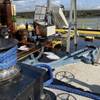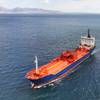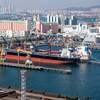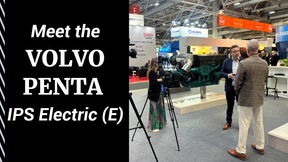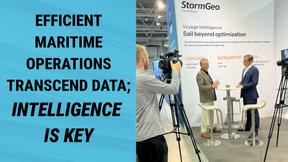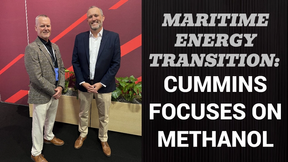The positive economy led to a 2.5 percent increase in the transhipment of goods at the Port of Amsterdam to 81.3 million tonnes in 2017. Together with the other seaports in the North Sea Canal Area, transhipment rose to a record level of 100.8 million tonnes.
In IJmuiden, transhipment was up 7 percent to 18.5 million tonnes. Beverwijk saw transhipment increase to 800,000 tonnes (up 6 percent). Zaanstad booked an increase of 35 percent to 300,000 tonnes.
The increase at the Port of Amsterdam was mainly due to higher transhipment of oil products and agribulk. Oil products were up 4 percent to 44.4 million tonnes and agribulk rose 5 percent to 8.3 million tonnes.
Koen Overtoom, CEO of Port of Amsterdam said: "The record transhipment in 2017 for the region confirms our strong position in wet and dry bulk and agricultural products. The North Sea Canal ports play a vital role in the international trade of these products. We will strengthen this activity and at the same time attract other cargo flows and business activity, for example for energy transition and the circular economy. The Port has a key role to play here."
18 hectares of land were allocated in 2017, compared to 11 hectares in 2016. The recipients included Bio Energy Netherlands, a biomass power station which generates electricity and raw materials for the chemical industry from waste timber, and Chaincraft, a biotech company that converts biomass into fatty acids.
In addition, Borghese Real Estate and DHL realised expansions at the Atlaspark and the creative hub Image Wharf was established at the Minervahaven. Two new facilities of Gam BAKKER and Containerterminal CTV Vrede Steinweg have also been realised at the HoogTij industrial estate, in which Port of Amsterdam is a participant. Port of Amsterdam has furthermore acquired 10 hectares of land on the northern side of the North Sea Canal.



